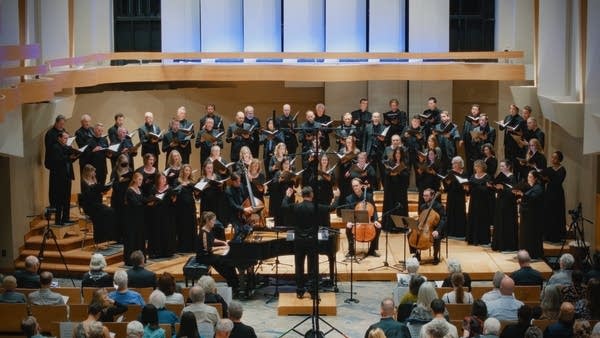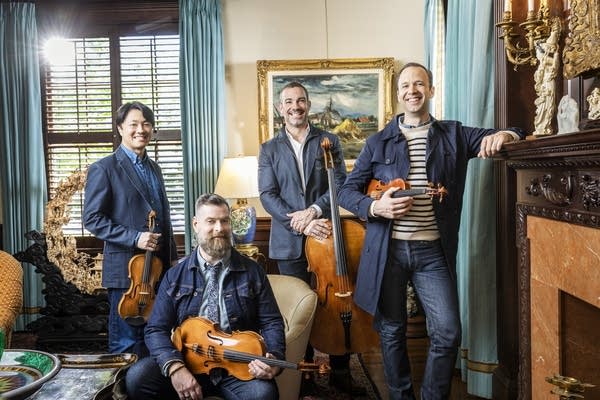
"Schumann for me is the most poetic of all composers. He has a way of turning a phrase which is so surprising and so unlike anything else and which can just pierce the heart without even seeming to try."
That's pianist Jonathan Biss, who this concert season is under the influence of Robert Schumann. Over the next several months Biss will lead an international initiative of over 30 concerts each one of which will examine the works of Robert Schumann. Next spring Biss will perform Schumann's Piano Quintet in E Flat Op. 44 at Carnegie Hall with the Elias String Quartet. Together, they've just released a new chamber recording featuring that quintet, along with Dvorak's Piano Quintet No. 2 in A op. 81. Biss says they paired these two works because they possess a very simple quality — joy!
1842 was the year Robert Schumann devoted himself to chamber music. That year he composed three string quartets, a piano quartet, a set of Fantasy Pieces for piano trio, and his Piano Quintet. The piano part was written for Clara Schumann, one of the top pianists of the day. The composer's inventive ideas are heard right away in the bold opening paragraph, which quickly makes way for a tender phrase for the piano. Jonathan Biss says it was Schumann's fresh approach that attracted criticism in the 19th century. "First of all, because his music is so unlike anything else, it doesn't conform to any conventional idea of how music is supposed to be," Biss explains. "Then I think also, because his music is so much about that tiny detail, about the way moment to moment it can just stop your heart. That's not a quality that really gets a composer respect per se. We tend to value our composers, first and foremost on their ability to put together these grand edifices, and Schumann could do that but he did it in his own very personal way."
One of Schumann's strokes of genius is heard in the poetic slow movement. The second section of this movement is a fiery transformation of the March theme which is strongly restated by the viola.
"For me Schumann is the one composer who gave voice to all our vulnerability," Biss suggests, "So his ability to describe it in his music, which he does very, very bravely, is a gift. I think that the feeling of loneliness, the feeling of being disconnected in some way, we all know what that means. And it's a phenomenal thing that we have Schumann to articulate it for us because most of us don't know how to."
Dvorak composed a wealth of chamber music. In that collection the jewel in the crown is his second Piano Quintet, Op. 81. It opens with a buttery cello melody that's reminiscent of a peasant song. Dvorak puts his stamp on each subsequent movement basing each one on a different style of Czech dance.
What unites the Schumann and Dvorak piano quintets featured on this recording is their ability to bring sheer joy to the listener, which is what you'll experience each time you listen to these tightly woven performances with Jonathan Biss and The Elias String Quartet.
Love the music?
Show your support by making a gift to YourClassical.
Each day, we’re here for you with thoughtful streams that set the tone for your day – not to mention the stories and programs that inspire you to new discovery and help you explore the music you love.
YourClassical is available for free, because we are listener-supported public media. Take a moment to make your gift today.
Your Donation
About New Classical Tracks®
Host Julie Amacher provides an in-depth exploration of a new classical music release each week.
Subscribe on Apple Podcasts, TuneIn, Radio Public, or RSS.











